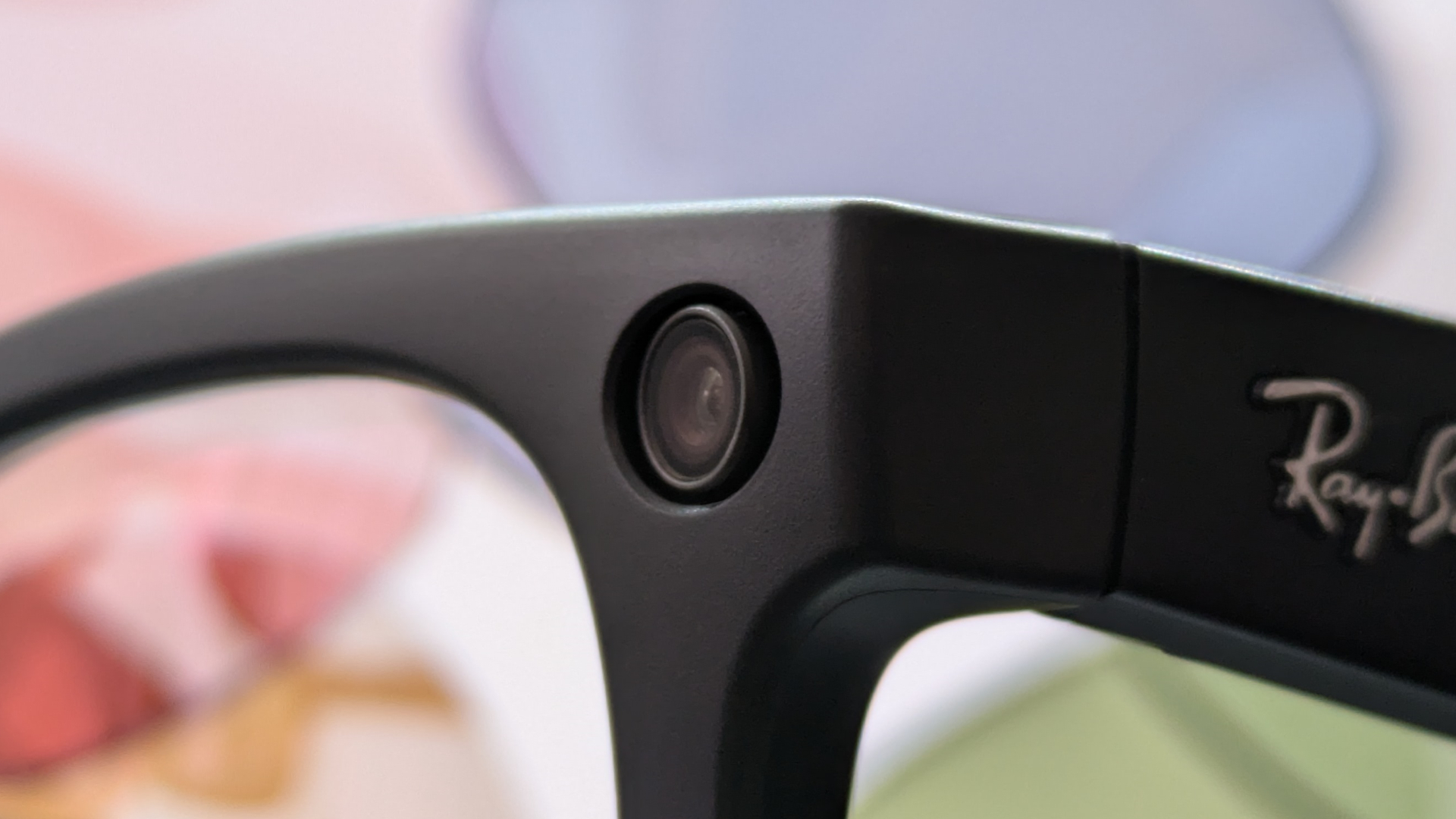Are my Ray-Ban Meta smart glasses spying on me? No, but college students are
I-XRAY plays I-Spy with Meta's smart glasses

In 2013, Google set off a firestorm of privacy objections when it strapped a camera to people's faces with the release of Google Glass. In 2024, much of the scopophobia surrounding camera lenses has been evaporated from society as we became more used to the presence of smartphones and our social media-spearheaded snap-happy culture — to which the Ray-Ban Meta smart glasses undoubtedly owe a portion of its success.
However, much like Gen Z's successful revivals of analog tech, flared jeans, and velour, two Harvard students are bringing back the fear of face-worn cameras after showcasing a piece of facial recognition tech that can identify the names, addresses, and phone numbers of strangers at a glance.
The project, called I-XRAY, was showcased on X earlier this week, showing how effective it is in snaring the identity of passersby. The tool was built by students AnhPhu Nguyen and Caine Ardayfio who sought to highlight privacy concerns by demonstrating how easily readily available resources (like Ray-Ban Meta's smart glasses, LLMs, and public databases) can be used, or misused, to extract people's personal information from online sources.
I-XRAY: How it works (and how to protect yourself)
While I-XRAY seems like some nefarious, underhanded means of doxing regular folk, it's actually making use of publicly available data and resources to do much of the heavy lifting.
The tool itself is designed to educate, rather than exploit, and won't be released to the public. However, Nguyen and Ardayfio reveal the pipeline by which I-XRAY works its magic, along with guidance on how to protect yourself against this type of tracking.
I-XRAY uses a camera feed from a pair of Ray-Ban Meta smart glasses, which is streamed to Instagram. This feed is then used to snare captures of a person's face, which is then sent to a reverse image search engine like PimEyes or FaceCheck.
When a match is found, I-XRAY uses an LLM to scrape any URLs for further information about a subject such as name, occupation, age, etc. This data is then fed into another search engine such as FastPeopleSearch, to expand the amount of data collected. The data found here can include phone numbers, home addresses, and even relatives — most of which are sourced from public records and social media profiles.
Stay in the know with Laptop Mag
Get our in-depth reviews, helpful tips, great deals, and the biggest news stories delivered to your inbox.
Are we ready for a world where our data is exposed at a glance? @CaineArdayfio and I offer an answer to protect yourself here:https://t.co/LhxModhDpk pic.twitter.com/Oo35TxBNtDSeptember 30, 2024
Finally, the tool attempts to match social security numbers (SSNs) to any phone numbers gathered in the above process, using free and public services like Cloaked to see if an SSN has been compromised in past data breaches before validating the full SSN with the results.
While that seems terrifying enough, more frightening is the speed at which this is done, with the original video showcasing the tool being used in real-time on a public subway. Ultimately concerning is the fact that all of the information it can scrape about an individual is pulled freely and easily from the web.
So what can you do to prevent falling foul of such tactics? Well, luckily, quite a bit. Though it may be time-consuming.
Nguyen and Ardayfio list several sites and services they made use of in the building of I-XRAY, all of which offer free services to remove yourself from their databases. The links shared by the duo are found below.
- PimEyes: How to remove images from results
- FaceCheck: How to delete your photos from FaceCheck Search Engine
- FastPeopleSearch: Remove Your Record From the FastPeopleSearch Database
- Instant Check Mate: User Data Tools
A more lengthier process involves removing your information from a wider source of data brokers.

How to stop Ray-Ban Meta smart glasses from using your data
Owners of Meta's smart glasses or spotters of them in public can breathe a sigh of relief, as while these smart glasses are used in the process, they're by no means a part of the intended use for the device.
In fact, any camera-touting pair of smart glasses would fit into I-XRAY's pipeline, or any camera for that matter. Meta's smart glasses are just a readily available piece of technology that offers hands-free capture potential due to its live streaming potential.
Still, there is plenty of skepticism surrounding Meta's glasses when it comes to privacy and data collection — albeit far less than the flak Google Glass was subjected to.
Whether that's a sign of the times, I can't say for sure. But I can say that there's a fair reason for some users to be concerned, especially after the company confirmed to Tech Crunch that it uses images and video shared with Meta AI for future model training.

However, as a rule of thumb, unless otherwise explicitly stated, almost all interactions with AI models should come with the expectation that conversations and actions will be used for training purposes nowadays.
Thankfully, while interactions with the company's AI should be performed with the knowledge that results may turn into training data, Meta's glasses do allow you to disable the sharing of additional data, voice data, and the removal of activities through its Meta View partner app.
Of course, for those still wanting additional peace of mind, there's always the option to turn off the power switch for the glasses when they're not actively in use, found on the left-hand temple hinge of each pair.
Not only is this one of the ways Meta recommends respecting other's privacy in sensitive spaces but it also helps to maintain battery life for longer periods.
More from Laptop Mag

Rael Hornby, potentially influenced by far too many LucasArts titles at an early age, once thought he’d grow up to be a mighty pirate. However, after several interventions with close friends and family members, you’re now much more likely to see his name attached to the bylines of tech articles. While not maintaining a double life as an aspiring writer by day and indie game dev by night, you’ll find him sat in a corner somewhere muttering to himself about microtransactions or hunting down promising indie games on Twitter.
